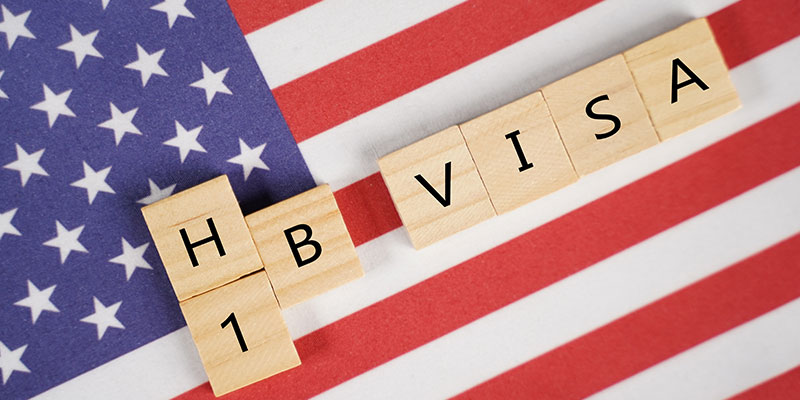
In this article, you will read about:
Take a moment to familiarize yourself with all the details about H1B visas before we move on to the article.
The work environment of an H-1B holder can change unexpectedly during employment. Job loss may occur because of a recession in business and related downsizing measures, changes in company policies or the strategy of business, mergers, takeovers, or other major changes. Prior to 2017, any changes in the employment status of the H1B holder would consequently affect H1B status negatively since it solely depends on the employment status of the H1B holder. They had no choice but to fast-track through a job hunt, find alternate employment, or leave the country to avoid risking an illegal status in the US.
This changed on the 17th of January, 2017, when a rule granted H1B holders an H1B grace period after quitting job or losing employment. H-1B employees who lose their job now have sixty days to find alternate employment, attempt to change visa status, or leave the United States.
In many situations, the sixty-day grace period is now a saving grace for H1B workers. For individuals who have reached the expiry of their H1B, the USCIS would grant ten days to help them get their affairs in order if their employers did not wish to apply for an extension. This ten-day grace would not apply if you lost employment before the expiry of your visa. In this situation, the new sixty-day grace period becomes a great help.
When the USCIS receives your employer's notice about your employment termination, they could update your H1B status with the sixty-day grace. Within this period, you are protected from being 'out-of-status,' and you can attempt to either remain in the same status by finding a new job or attempt a change in status. According to immigration laws, you will not be able to claim any visa privileges like extension, change of status, etc., unless you are in legal status. If you cannot change either way within sixty days, the USCIS revokes your H-1B visa.
Requesting the sixty-day grace period
Unfortunately, there is no procedure for requesting the H1B sixty-day grace period. It is also not granted automatically. The grace period is granted solely at the discretion of the Department of Homeland Security (DHS). In particular, when the H-1B visa holder files for a change of status or H-1B transfer, the DHS officer will go through documentation and supporting evidence. They will then use their discretion to approve the sixty days, a shorter grace period, or none at all. That is why it is best to present all possible documentation and supporting evidence when you make your case.
Reasons for Refusal
The USCIS is open to granting the full sixty-day grace period in most cases. But, a few circumstances lead to the denial or shortening of this period based on immigration policies and laws. These may include instances of unlawful stay or previous criminal or fraudulent activity records, like unauthorized employment, etc.
Also Read: H1B Transfer FAQs
The sixty-day grace period allows you time to find employment, apply for a change in visa status, or rectify your loss of employment in any other way to avoid an 'out-of-status' development. You can use this time as soon as it kicks in, from the last day of work at your previous employment.
One of the simplest options is to use the prior information about termination your employer will give you to look for alternative employment - use it as an H1B transfer grace period. That gives you thirty days since the USCIS generally approves visa renewal or transfer petitions if your visa is in status and there is a gap of fewer than thirty days.
An H1B worker who has a spouse living and working in the US can change to a dependent visa like H-4 or L-1. There is a lot of documentation involved, including proof that you and your spouse have maintained the previous status. Still, on approval, you will be able to find alternative employment without having to leave the US.
During the difficult COVID-19 period, there were many petitions filed for an extension of the grace period to 180 days. Petitioners sought to:
There have been no recorded responses from the White House as yet.
In conclusion
The sixty-day grace period is a great advantage to H1B holders to face termination. It gives them a breathing space to seek new opportunities or re-organize their situation and stay within their legal status.
The H1B visa is highly coveted for all the advantages it gives the holder. But there is a lot that goes into getting the visa approved. To make the right start on your H1B journey, visit TechFetch H1B to gather complete information about H1B.
**Disclaimer: H1B rules and regulations keep changing from time to time. For updated information, always refer to the USCIS official website.